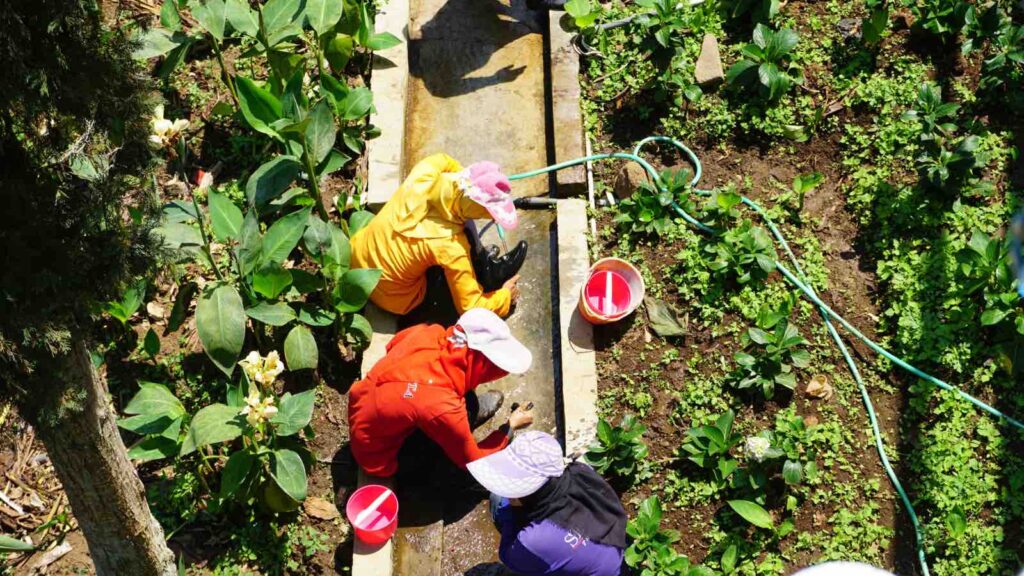By supporting biodiversity, utilizing local resources, and reducing the use of synthetic chemicals, Agroecology principles can create healthier, more sustainable, and fairer food systems.
JAKARTA, Indonesia — As concerns over food insecurity, environmental degradation, and the marginalization of small-scale farmers continue to mount, agroecology has emerged as a promising solution for revitalizing Indonesia’s food systems. This holistic approach to agriculture emphasizes working in harmony with nature rather than against it, aiming to enhance farming practices by harnessing ecological processes and ecosystem functions.
RELEVANT SUSTAINABLE GOALS



Transforming Food Systems with Agroecology Principles
Agroecology encompasses a diverse range of farming practices, such as intercropping, mulching, agroforestry, and integrated crop-livestock systems, while minimizing the use of synthetic and toxic external inputs and reducing waste production. Through diverse crop rotations, reduced chemical inputs, and the integration of natural ecosystems, agroecology can increase biodiversity, improve soil health, reduce chemical dependence, and support local food systems, leading to enhanced food security and support for small-scale farmers.
Moreover, agroecology emphasizes fair governance of food systems. It encourages collaboration among farmers, communities, scientists, and policymakers, enabling the development of locally relevant and adaptable innovations that meet evolving social and ecological needs. This approach empowers small-scale producers, particularly the younger generation, and strengthens their participation in shaping sustainable food systems.
By respecting and leveraging local knowledge, agroecology empowers communities and supports their involvement in decision-making processes. It can contribute to more equitable distribution of land and other natural resources, reducing inequalities. By working with nature, reducing chemical inputs, and supporting local food systems, agroecology enhances food security and empowers farmers, offering a promising path for improving our food systems.
Agroecology also plays a vital role in forest and land conservation through sustainable and environmentally friendly practices. By adopting agroecology, we can restore soil health, preserve forests, increase biodiversity, and create more sustainable agricultural systems. This approach not only supports ecosystem balance but also, through the engagement and empowerment of local communities, enhances the well-being of surrounding populations, creating a balance between human needs and nature conservation.
Agroecology transforms the way we farm by integrating ecological principles into agricultural practices. By supporting biodiversity, utilizing local resources, and reducing the use of synthetic chemicals, we can create healthier, more sustainable, and fairer food systems. Farmers become more self-reliant, farmlands more productive, and our environment better protected.
As Indonesia grapples with the challenges of food security, environmental degradation, and the marginalization of small-scale farmers, agroecology offers a holistic and sustainable solution. By embracing this approach, the nation can revitalize its food systems, safeguard its natural resources, and empower local communities, paving the way for a more resilient and equitable future.
Lead image courtesy of Sanford
You may also be interested in :
UNESCO Vows To Safeguard Bali’s Ancient Subak Irrigation System



